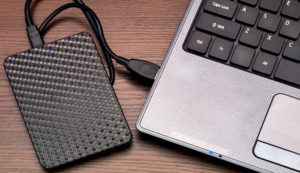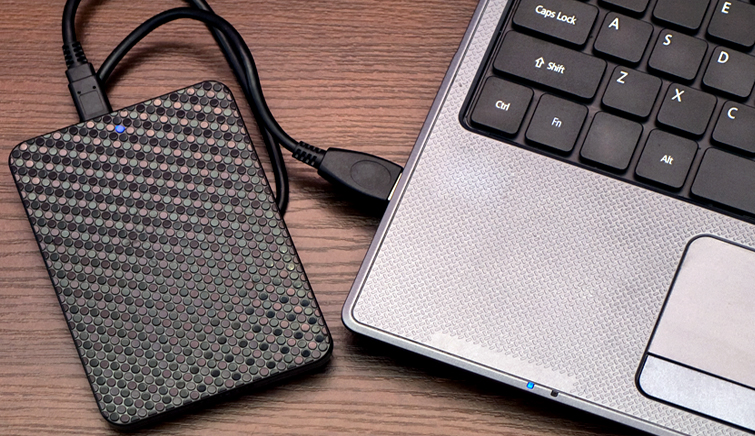Common External Hard Drive Mistakes That Lead To Data Loss
So, you’ve got a brand-new external hard drive, and you’re ready to use it to back up important files. That’s a good thing; onsite data storage is fairly reliable, and if you use decent data backup software,  you can breathe a little easier.
you can breathe a little easier.
However, external hard drives certainly aren’t perfect. While they’re not any more susceptible to failure than internal hard drives, sometimes they’re used improperly. This can result in a premature hard drive failure.
Normally, a hard drive lasts for about 8 years, give or take, although a number of factors can affect that life expectancy. External hard drives don’t tend to last as long. Here are some of the habits that can cause external hard drive failure (and tips for preventing premature issues).
- Treating the drive like a mobile device. External hard drives are mobile, right? Some of them are even marketed as “mobile hard drives.” Therefore, you can move them around and take them with you. Well, no, not quite. Remember that an external hard drive is just an internal hard drive in a fancy enclosure. It’s fairly susceptible to damage from sudden movements. Therefore, you should try to avoid moving it if possible.That means that if you’re a student, don’t toss your external drive into your backpack on your way to class. Treat your drive like a sensitive piece of electronics.
- Letting it operate on its side. Many newer external hard drives are gorgeous devices, and they’re made to look pretty while they sit there storing your data. There’s just one issue: great aesthetic design doesn’t always translate to solid technical engineering.Some external hard drives can stand up vertically, but this also means that they’re easy to tip over. If your drive falls while it’s spinning, the read/write heads can crash into the platters. That’s not good news. Keep your drive in a horizontal alignment when possible.
- Not giving the hard drive room to breathe. All hard drives generate heat when running, and to keep running, they need to expel that heat. Some external drives have fans, while others use metal cases to distribute some of the heat. In either case, you need to make sure that your drive can expel that heat. Don’t put the device on a carpet, for instance, or up against a wall.
- Unplugging the drive from a running computer. If you “eject” the drive, you can unplug it, but unplugging without a proper ejection procedure can cause corruption. While some types of corruption can be resolved with data recovery software, it’s certainly not a problem that you want to deal with.
- Not protecting against power surges. External hard drives can easily take damage from sudden power surges, and their cases rarely provide ample protection. Keep it plugged into a safe power source.
One final tip: never store your only copy of anything important on a single device. Some people see external hard drives as a perfect backup solution, but remember, any hard drive can (and eventually will) fail. Take appropriate precautions, however, and you’ll be completely fine.
